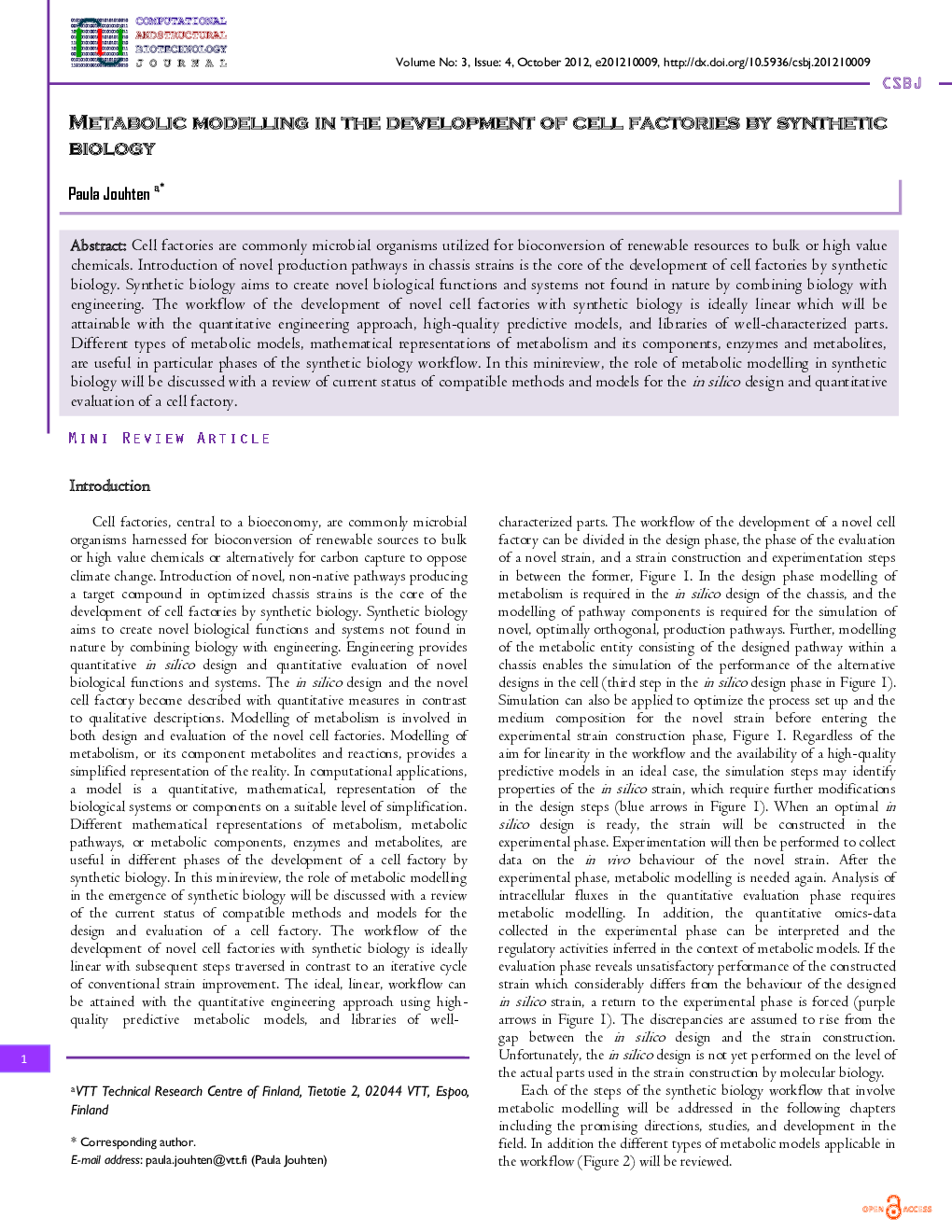| Article ID | Journal | Published Year | Pages | File Type |
|---|---|---|---|---|
| 2079307 | Computational and Structural Biotechnology Journal | 2012 | 9 Pages |
Cell factories are commonly microbial organisms utilized for bioconversion of renewable resources to bulk or high value chemicals. Introduction of novel production pathways in chassis strains is the core of the development of cell factories by synthetic biology. Synthetic biology aims to create novel biological functions and systems not found in nature by combining biology with engineering. The workflow of the development of novel cell factories with synthetic biology is ideally linear which will be attainable with the quantitative engineering approach, high-quality predictive models, and libraries of well-characterized parts. Different types of metabolic models, mathematical representations of metabolism and its components, enzymes and metabolites, are useful in particular phases of the synthetic biology workflow. In this minireview, the role of metabolic modelling in synthetic biology will be discussed with a review of current status of compatible methods and models for the in silico design and quantitative evaluation of a cell factory.
